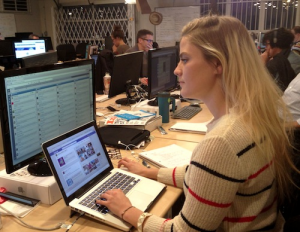This Week in Thought Leaders: The Great Thanksgiving Opt-Out, Halting the Brain Drain, More

Author and consumer advocate Christopher Elliott has a plan. In one of this week's most widely shared posts, he outlined five reasons why he will “opt-out” of the Transportation Security Administration's body scanners during the Thanksgiving travel week. He encouraged LinkedIn readers to do the same.
His reasons are varied. The scanners may expose travelers to radiation. They likely violate Americans' constitutional rights. And they're also a waste of money, he says, costing a quarter of million dollars apiece. So, next week, Elliott is joining other travelers nationwide in refusing to walk through the machines.
The protest, he says, is meant to “slow screenings to the point where the agency will have to reconsider the way it checks air travelers, as it did during a successful opt-out action two years ago.”
His post brought a flurry of responses from professionals, including more than 600 comments. Many LinkedIn users agreed with Elliott and explained their own rationale for opting out, from fears of health risks to anger over what some say has become "security theater" at airports. Other commenters begged travelers to go through the machines -- if only to avoid holding up lines for everyone else.
What’s your take? Read Elliott’s post, vote on his poll – Will you be opting out? – and then take a look at seven other thought-leader posts worth reading:
Jeff Selingo: The Geography of Education Every May, graduates from colleges around the country do the same thing. They go to commencement, pack up their things and move to cities like New York, San Francisco, Denver and Boston to find work. That means the most highly educated, skilled workers are now increasingly concentrated in just a handful of urban areas. Can that be changed? Selingo explains how telecommuting could better distribute talent – and let new grads work wherever they want.

Alexis C. Madrigal: Is the Democrats' Tech Advantage Durable? The Obama campaign assembled a dream team of engineers to build the best tech infrastructure a campaign has ever had. It worked. Madrigal's question: Can the Dems sustain that technical prowess in the future? He's got a hunch they can. Here's why.
Ben Mangan: Three Things the CFPB Must Do If there's such a thing as a start-up in the federal government, it's the Consumer Financial Protection Bureau. The consumer agency is a little more than a year old, but it still needs to define itself. Mangan has advice. First, come up with a definition for predatory practices. Then, make sure crowdsourcing becomes a way of life.

Arianna Huffington: The President Asked Us to Push Him: Here's a To-Do List to Get Us Started President Obama's new term begins Jan. 21. And while he may have a roadmap for what's ahead, Huffington says it's up to Americans to push the president to adopt policy changes. On her wish list? She'd like the president to spend more time addressing the housing crisis, drones, prisons, the drug war, climate change and voting.
Hunter Walk: Act Like a New Employee Everyday At Google, it's easy to spot the newbies: they're the ones drooling over the free food in the company's cafes. But even if you've been in your job for a long time, Walk says you should remember how you behaved in your corporate youth. New workers are open minded when dealing with problems, and also blissfully free of political baggage. Can you return to that mindset?
Click here to read more from our thought leaders, or to nominate luminaries you think should be sharing their insights on LinkedIn.
Editor’s Note: This blog post is syndicated from LinkedIn Editor Chip Cutter. Follow him on LinkedIn for more.
Photo credit: Airport crowds (Shutterstock); kale salad (The Cheesecake Factory).


